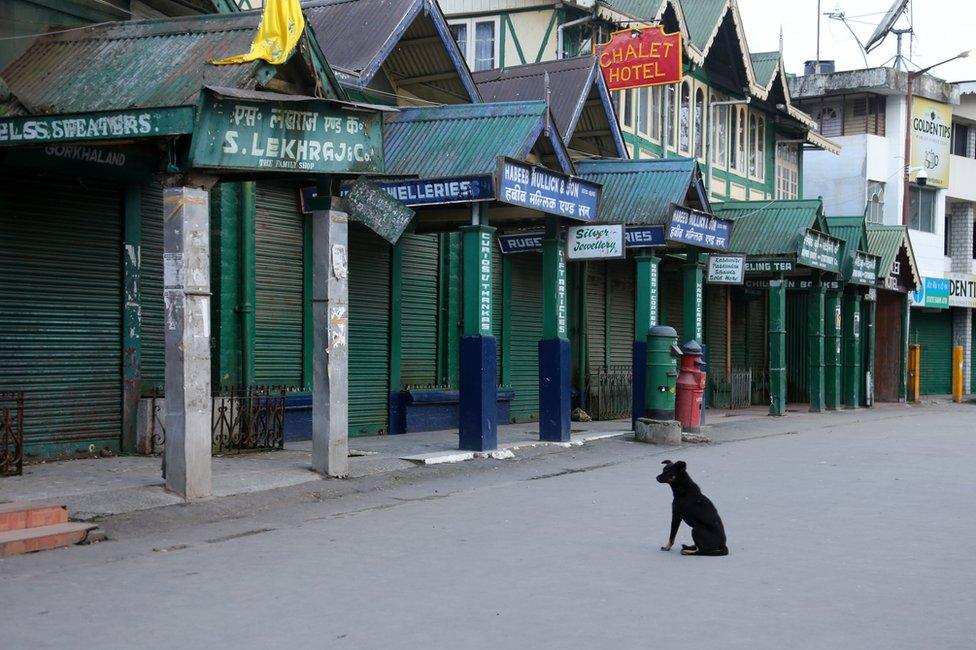India Darjeeling strike ends after 100 days
- Published

The strike paralysed Darjeeling for more than three months
A 100-day strike called by separatists in India's Darjeeling region has been called off after an appeal from the home minister.
The strike paralysed the estates that produce the famous Darjeeling tea and affected the tourism industry.
A statement from the Gorkha Janmukti Morch (GJM), which had led the strike, said the shutdown ended at 6am IST (0030GMT) on Wednesday.
The GJM wants a separate state for majority Nepali-speaking Gorkhas.
The movement was provoked by a decision of the West Bengal government to introduce Bengali as a compulsory subject in schools across the state, including in Darjeeling.
At the peak of the summer tourist season, tens of thousands of visitors were left stranded in the hills, with many desperate to get out after GJM leader Bimal Gurung said they could stay there, but only at their own risk.
The strike was over a call for a separate homeland for the area's majority Gorkha community
The continuing strike had also begun to have a serious impact on livelihoods in the region, where many depend on tourism and the tea sector.
The tea industry employs some 100,000 permanent and temporary workers.
The Press Trust of India news agency said that despite the strike, many shopkeepers had started reopening over the past week in defiance of the ban.
"The decision was taken after Indian Home Minister Rajnath Singh's appeal to withdraw the strike," the PTI news agency quoted a GJM spokesman as saying.
In his appeal to the GJM, Mr Singh had said that "dialogue was the only way" to resolve problems.
Relief as shops reopen - Sameer Hashmi, 大象传媒 News in Darjeeling
Most shops in Darjeeling have now pulled up their shutters and reopened. People have come out in huge numbers to shop - a sign that the end of the strike has come as a huge relief.
Grocery, electronic and cloth stores are all busy ahead of the state's main festival - Durga Puja - that starts this week.
While locals are happy that normality has been restored, many are also disappointed. They feel that the "pain" and "sacrifice" people have gone through since June to support the strike didn't bring any major breakthrough.
Almost all the locals staunchly support the push for a separate state. But with no concrete assurance from the government, people are sceptical that their demand will be fulfilled any time soon.